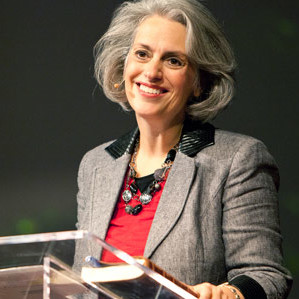Jesus told his disciples to expect the world to misunderstand, malign and make fun of them in the same way it mocked him. In Matthew 5:10-12 we hear Jesus say “Blessed are you when others revile you and persecute you and utter all kinds of evil against you falsely on my account.” Peter, one of those first disciples, then says in turn to the next generation of believers in I Peter 4:14, “If you are insulted for the name of Christ, you are blessed, because the Spirit of glory and of God rests upon you.” Paul says to Timothy in 2 Timothy 3:12, “Indeed, all who desire to live a godly life in Christ Jesus will be persecuted.” We read similar warnings in John 15:20, Acts 14:22, 2 Corinthians 4 and from James, the brother of our Lord. Why then do we expect the world to love, like, affirm, celebrate and follow us – on social media, let alone in real life?
Peter Kapsner recently joined me for a conversation about the challenges the culture presents to us as Christians in the culture today. The first conversation provoked a second conversation in which we began to unpack a series of questions and offer Biblically faithfully answers.
The culture exalts inclusion over truth and judges as hateful anyone or any institution that excludes anyone (except for those who exclude anyone who excludes anyone they believe should be included). Peter shared that the current “inclusion doctrine” is often based on misunderstanding of biblical, unconditional love. Love is, in fact, not a synonym for approval. Love is deeply personal and therefore, exclusive. The question is not as broad as do you love, but do you love me – and do you love me in a way I perceive to be loved?
In the Bible, love is not about inclusion but deep personal, self-sacrificing, never ending, never forsaking, enduring affection based on the desire for the other to experience wholeness. God’s unconditional love is actually in pursuit of what’s best for us. And what’s best is based on what God deems to be good. Good is also not inclusive of anything and everything. Good is a trancendental attribute of God’s character overflowing into Creation itself. Only God is ultimately good and therefore in a position to define that which is good.
Certain things, certain relationships, are within the definition of good and others are not. Those things are bad or evil. Those are not God’s best for us. They are, therefore, beyond the bounds of love. They are excluded, because of love.
The next time someone condemns you as hateful and unloving because you stand within the Biblical boundaries God has drawn between good and evil, you are encouraged to answer with a conversation about love. As Christians we are agents of a grace established in love which means it is also bounded by God’s holiness. God’s unconditional love is real, substantial, established in the flesh and on the cross. God’s love is not undefined and whatever I imagine. God’s love is demonstrated in a person, for people, unto redemption.
So, when people walking in the wide way which leads to destruction turn with enmity toward you and call you hateful, consider the narrow path in which you walk. Recognize the reality of moment: you are in Christ, you are yoked to Him, you put your feet in line with His, and you walk in the Spirit and by the Spirit, not in the ways of the world but in The Way of the Lord. It is a Way of Truth and it leads to Life. Not everyone follows in it. The right affect then is not hate but love – the deep desire that the one accusing you would be made whole. And how can that happen? Only through acceptance of the unconditional love of God offered as a gift of grace in Christ Jesus the Lord.






